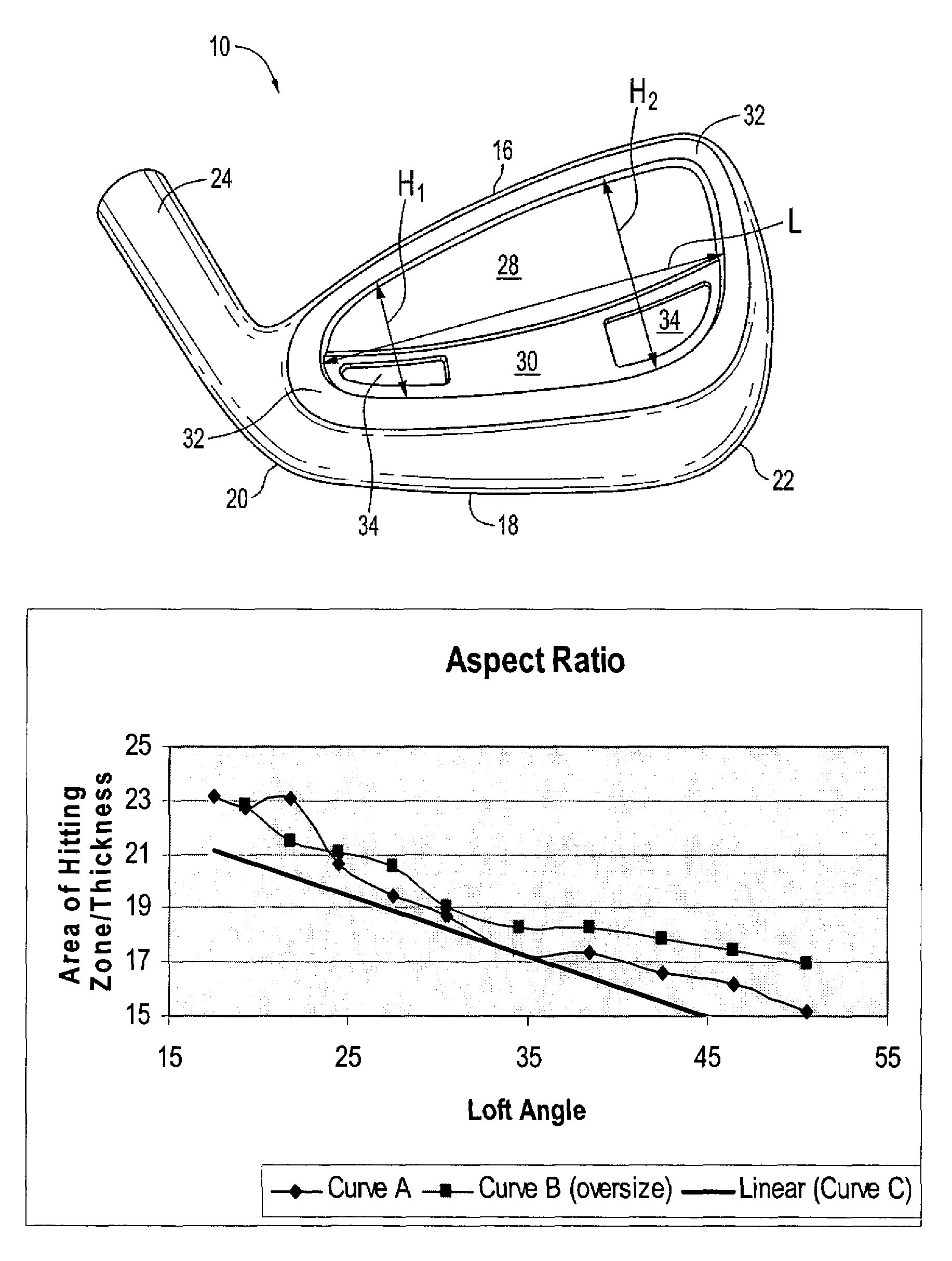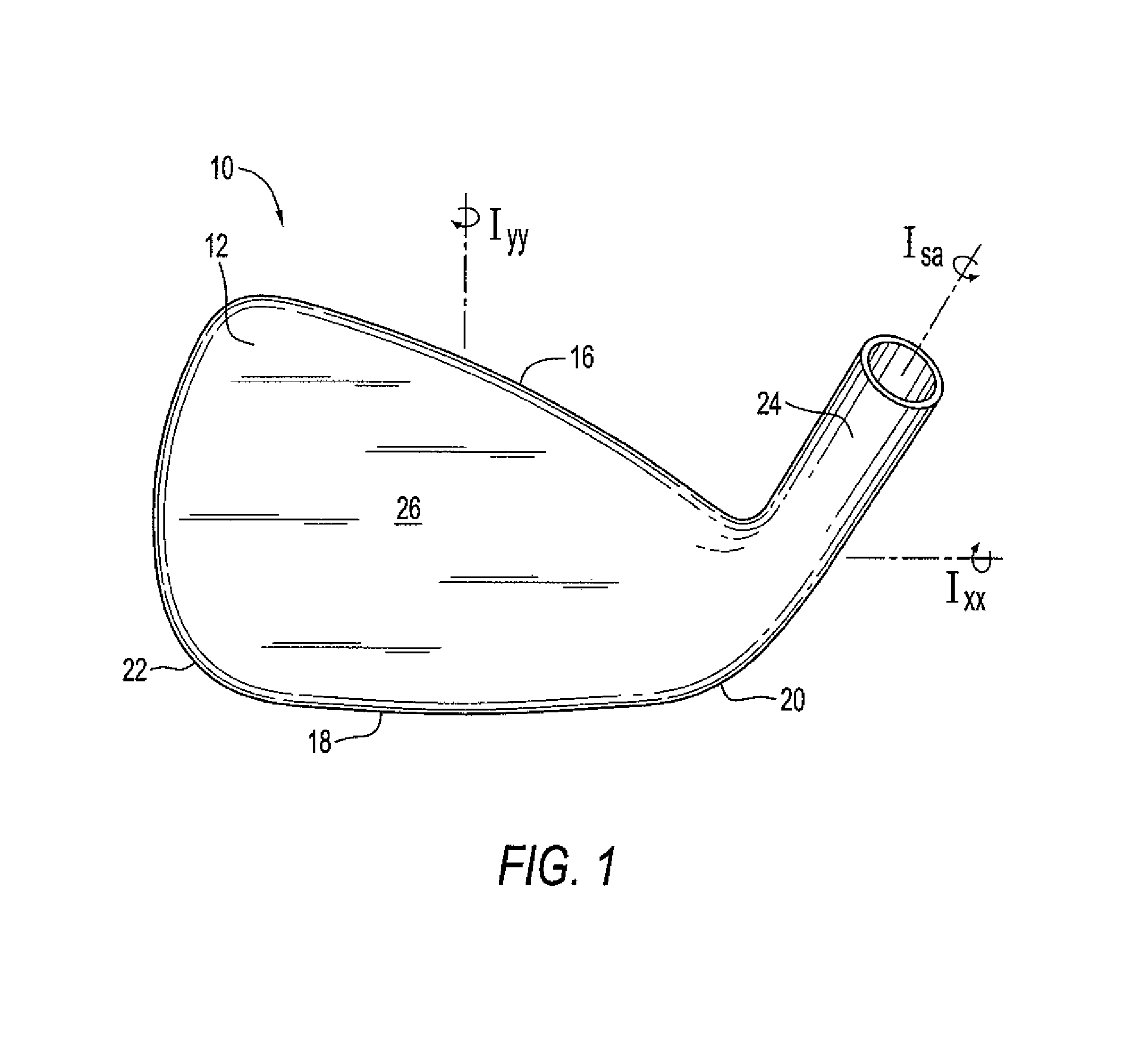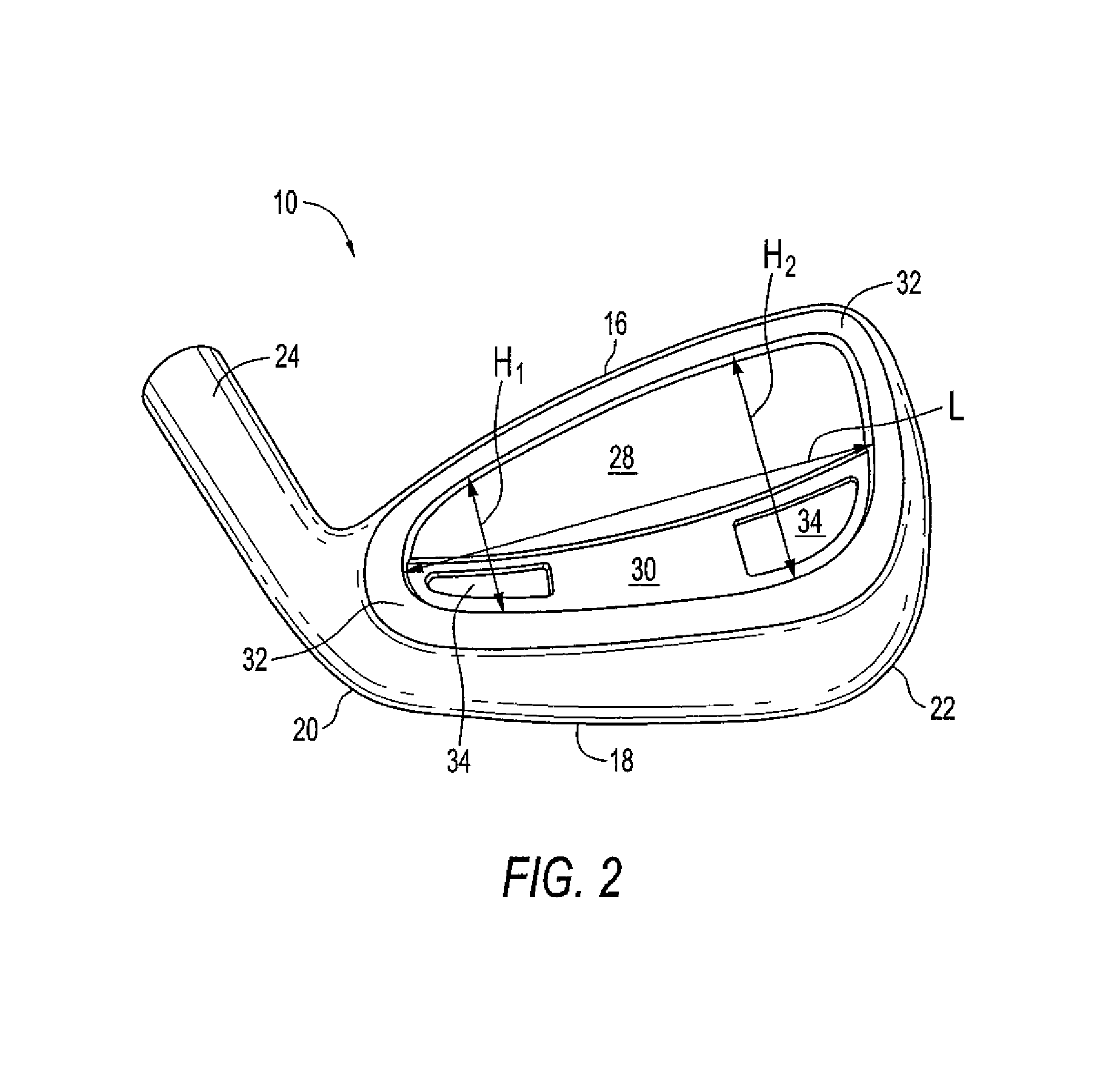Forged iron-type golf clubs
a golf club and iron-type technology, applied in the field of golf clubs, can solve the problems of low yield strength, more difficult for the average golfer to consistently hit well, and more difficult for the average golfer to swing properly,
- Summary
- Abstract
- Description
- Claims
- Application Information
AI Technical Summary
Benefits of technology
Problems solved by technology
Method used
Image
Examples
Embodiment Construction
[0036]Club head 10 in accordance with an embodiment of the present invention is illustrated in FIGS. 1–7. Club head 10 comprises front 12, back 14, top 16, sole 18, heel 20, toe 22 and hosel 24. The club head is a single-piece forging, i.e., it is forged from a single ingot and does not include a face insert, or it is formed from a stainless steel body and stainless steel insert. The body is forged and the face insert is forged or stamped. A shaft (not shown) is connected to the club head at hosel 24 and a grip (not shown) is provided at the top end of the shaft. The grooves on the front 12 are omitted from the figures for clarity. Front 12 comprises hitting zone 26, which preferably is defined by the rear cavity area and is located opposite to top portion 28 and reinforced portion 30 as best illustrated in FIGS. 2 and 3. Club head 10 is a “cavity back” club, i.e., a substantial portion of the mass of the club head is positioned on the back side around perimeter 32 of the club head....
PUM
 Login to View More
Login to View More Abstract
Description
Claims
Application Information
 Login to View More
Login to View More - R&D
- Intellectual Property
- Life Sciences
- Materials
- Tech Scout
- Unparalleled Data Quality
- Higher Quality Content
- 60% Fewer Hallucinations
Browse by: Latest US Patents, China's latest patents, Technical Efficacy Thesaurus, Application Domain, Technology Topic, Popular Technical Reports.
© 2025 PatSnap. All rights reserved.Legal|Privacy policy|Modern Slavery Act Transparency Statement|Sitemap|About US| Contact US: help@patsnap.com



